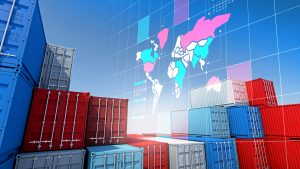What to Expect for Global Sourcing Under the New Administration
As a new presidential administration begins, businesses involved in global sourcing are bracing for possible changes that could reshape the trade landscape. From shifts in tariffs to new regulatory policies, these changes could affect sourcing costs, supplier relationships, and the overall resilience of supply chains. In this post, we’ll explore key areas where the new administration’s policies may impact global sourcing and how companies can adapt to these evolving dynamics.
1. Potential Shifts in Trade and Tariff Policies
Impact: The new administration’s stance on trade may bring adjustments to tariffs on goods imported from key sourcing countries, including China, Vietnam, and Mexico. These tariff changes can have a direct impact on the costs associated with overseas manufacturing and importing goods, affecting both product pricing and profit margins.
What You Can Do: To prepare for potential tariff shifts, diversify your supplier network across different regions. Having suppliers in multiple locations can help cushion the impact of tariff changes and provide flexibility in cost management. Staying updated on government announcements and consulting with a sourcing partner can also provide strategic insights and help you stay one step ahead.
2. Evolving Compliance and Regulatory Standards
Impact: New regulations could influence everything from product standards to environmental compliance and labor practices in various sourcing regions. Adjustments to policies that govern material sourcing, labor conditions, or environmental impact can affect the choice of suppliers and may require additional compliance measures.
What You Can Do: Maintain open communication with suppliers and regularly review compliance practices to ensure alignment with the latest standards. Partnering with a sourcing expert like EDS International can also help manage the complexities of regulatory compliance, as we assist clients in navigating local and international regulations across markets.
3. Opportunities for Market Diversification
Impact: With potential shifts in trade dynamics, businesses may find new sourcing opportunities in regions like South Asia, Eastern Europe, and Latin America. Expanding into these markets can offer alternative supply chains that balance quality, cost, and lead times.
What You Can Do: Evaluate emerging markets for suppliers that align with your quality and cost requirements. Our team specializes in identifying reliable manufacturers worldwide, helping you build a diversified supply chain that mitigates risks associated with relying on one country or region.
4. Reinforcing Supply Chain Resilience
Impact: Building a resilient supply chain has become a top priority for companies as they prepare for fluctuating tariffs, political changes, and global disruptions. The focus is on creating a flexible network that can adapt quickly to unexpected changes in policy or demand.
What You Can Do: Reinforce your supply chain by building relationships with multiple suppliers across different geographies. Consider implementing digital supply chain management tools for real-time visibility and better risk management. EDS International can support you in establishing a resilient and adaptable supply network that meets your company’s unique needs.
How EDS International Can Help
At EDS International, we understand the complexities of navigating global sourcing in times of political and economic uncertainty. Our team stays on top of emerging trends and policies to provide informed, strategic sourcing guidance. Whether you need help with supplier diversification, compliance, or risk mitigation, we’re here to help you adapt and thrive in the changing landscape.
Contact us today to learn how we can support your sourcing goals as we move into this new era.








